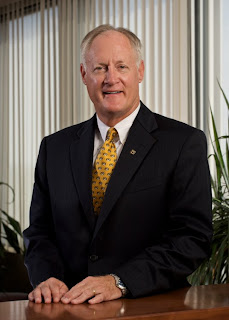
By W. Dudley McCarter
Elizabeth Mitchell filed a medical negligence action against Dr. Milton Kardesch, alleging that Dr. Kardesch deviated from the standard of care while treating her husband and that Dr. Kardesch’s negligence resulted in her husband’s death. One night, Mr. Mitchell had chest pains and a nightmare about death. The next morning, Mrs. Mitchell called Dr. Kardesch, who was her husband’s internist. She spoke with Dr. Kardesch’s medical assistant and relayed the previous night’s occurrence. Dr. Kardesch’s medical assistant testified that she could not specifically recall Mrs. Mitchell’s call, but that she believed she told Mrs. Mitchell to take her husband to the emergency room because of the chest pain. Dr. Kardesch testified that he remembered Mrs. Mitchell’s call and that he had instructed his assistant to tell her to get her husband to the emergency room. Mrs. Mitchell testified that she was never instructed to take her husband to the emergency room. Fourteen days later, Mr. Mitchell again felt tightness in his chest and went to the hospital. He died the next day from complications arising from myocardial infarction and arteriosclerosis. The trial court prohibited Mrs. Mitchell’s counsel from impeaching Dr. Kardesch with his interrogatory answer in which he had denied that his license had been suspended or revoked.
Elizabeth Mitchell filed a medical negligence action against Dr. Milton Kardesch, alleging that Dr. Kardesch deviated from the standard of care while treating her husband and that Dr. Kardesch’s negligence resulted in her husband’s death. One night, Mr. Mitchell had chest pains and a nightmare about death. The next morning, Mrs. Mitchell called Dr. Kardesch, who was her husband’s internist. She spoke with Dr. Kardesch’s medical assistant and relayed the previous night’s occurrence. Dr. Kardesch’s medical assistant testified that she could not specifically recall Mrs. Mitchell’s call, but that she believed she told Mrs. Mitchell to take her husband to the emergency room because of the chest pain. Dr. Kardesch testified that he remembered Mrs. Mitchell’s call and that he had instructed his assistant to tell her to get her husband to the emergency room. Mrs. Mitchell testified that she was never instructed to take her husband to the emergency room. Fourteen days later, Mr. Mitchell again felt tightness in his chest and went to the hospital. He died the next day from complications arising from myocardial infarction and arteriosclerosis. The trial court prohibited Mrs. Mitchell’s counsel from impeaching Dr. Kardesch with his interrogatory answer in which he had denied that his license had been suspended or revoked.




